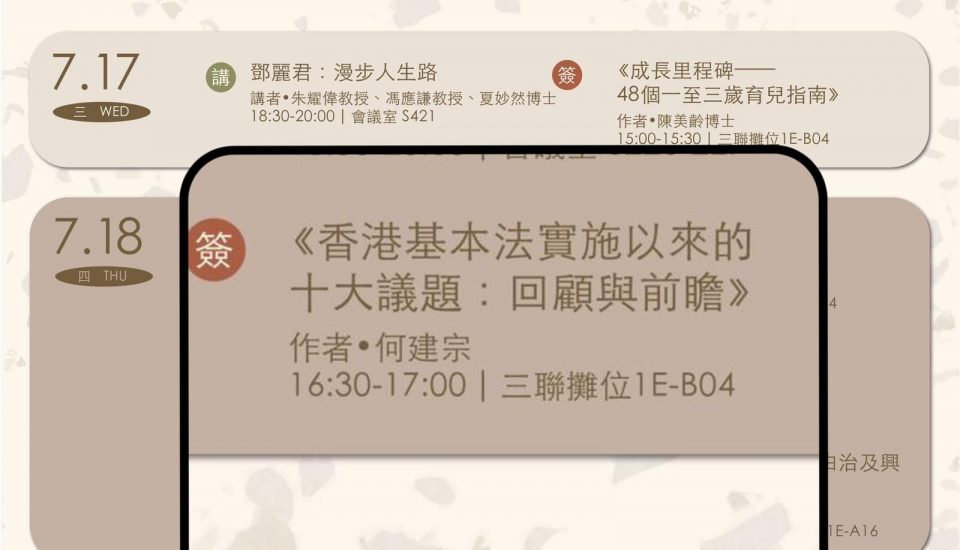Henry Ho:Henry Kissinger – A century of efforts in promoting world peace

何建宗:基辛格給美國政界的忠言

在TVB遇見你!大灣區十大傑出港生評選2023 佛山順德賽區

On May 27, Henry Kissinger will celebrate his 100th birthday – which is an occasion to recall his contribution to establish diplomatic relations between China and the US in the 1970s. As a former US Secretary of State during presidencies of Richard Nixon and Gerald Ford, Kissinger has epitomized in an interview in latest edition of The Economist how to resolve conflicts between China and the US and both sides need to avoid resorting to ruinous force and even war.
Kissinger is a legendary American top diplomat and a foremost expert on China-US relations. Born in a Jewish family in Germany in 1923 and later immigrated to the US to avoid the German Nazis, Kissinger is the sole politician in American history to hold the dual positions as National Security Advisor and Secretary of State.
Indeed, Kissinger has made significant contribution to the end of the US-Soviet Cold War which lasted for more than 40 years until early 1990s after the end of World War II. Dating back to early 1970s, Kissinger made a secret visit to China and held talks with late Premier Zhou Enlai, paving for the way for Nixon’s meeting with late leader Mao Zedong during his epoch-making visit to China and changing the course of world’s history. During the abyss of Cold War, the landmark normalization of China and the US relations had been conducive to the world. Also, Kissinger was committed to easing the US-Soviet hostilities and contributed to signing of an agreement of Basic Principles of Relations between the US and Soviet Union in 1972, stating both sides conducted mutual relations on the basis of peaceful coexistence.
In the interview with The Economist, Kissinger offered three pieces of advices for resolving conflicts between China and the US. First, Kissinger pointed out that China never heads for “world domination in a Hitlerian sense”. He sees Chinese systems are more Confucianist in nature and Chinese leaders attain maximum strength of the country which “is capable and to seek to be respected for their accomplishments”. On Taiwan question, Kissinger believes both countries should be cautious and the US should not feed the suspicion that it supports Taiwan’s independence.
Second, both countries should seek common ground for global stability. In respect of Ukraine crisis, Kissinger highlighted China may position itself to mediate between Russia and Ukraine. China and the US should talk on development of Artificial Intelligence (AI) – which can become a key factor in security in just five years – and AI cannot be pushed to limits in military fronts.
Third, Kissinger stressed that the US must learn to be more pragmatic and link its policies to the country’s domestic objectives, whatever they are, and Washington has to renew its political culture and it “desperately needs long-term strategic thinking” – a challenge that the American government must solve.
Being mired in Cold War mentality and zero-sum mindset today, the US government’s strategy is aimed at containing China’s further economic and technological development. From Donald Trump’s regime to Joe Biden’s administration, the US has maintained a China strategy which focuses on containment and suppression through diverse tactics including trade sanctions. Washington has regarded China as its key strategic rivalry. Apparently, no one wants to see that the world would be divided into the two distinct camps again after tense confrontation between the two power poles of the US and Soviet Union in the Cold War. That is worth the caution of political leaders in the West.
Meanwhile, every country’s diplomatic policy should be mapped out in line with its national interests and development. After Trump came to power in 2017, China – US relations have been in deterioration. Trump adhered to trade protectionism, mounted diverse trade sanctions against China and raised tariffs on Chinese goods. Biden has followed Trump’s lead by seeking decoupling of industry chains with China. Based on recent trade figures from the US Commerce Department, the merchandise trade between China and the US reached a staggering US$690.5 billion last year, exceeding record set in 2018. Annual goods-trade deficit of the US with China widened 8% to US$382.9 billion, the biggest on record after 2018. These trade figures underlined the fact that China and the US are closely reliant and inter-connected with each other in profound economic co-operation – even after years of trade disputes and rows. The US’s bid to decouple with China has violated free market principle and undermined the interests of both American and Chinese consumers.
Above all, China, as a country undertaking heavy responsibilities in international arena, has been devoted to mediate Russia-Ukraine crisis. As the root cause of the Russia-Ukraine conflict, the US government has incited its allies to impose a wide array of economic sanctions against Russia and even provide weapons, namely fighter jets and missile systems, to Ukraine forces, which has further aggravated the crisis and increasingly polarized the world. China has put forward peace-making proposals such as respecting all countries sovereignty, initiating a ceasefire and launching peace talks. Last month, President Xi Jinping had held a landmark phone call with Ukrainian President Volodymyr Zelensky over the crisis. China’s special representative for Eurasian affairs Li Hui has earlier visited Ukraine and continued his trip to other European cities to seek consensus from all sides in a bid to broker peace. With a vision of building a community with shared future for mankind, China has reaffirmed its stance on a political settlement of the Ukraine war and curated all favourable conditions for peace talks.
China and the US have played momentous roles on global stage. It is an unprecedented challenge, but also a great opportunity for the US to foster co-operation with China in a range of global challenges, such as trading and climate change and others. The US containment approach to China is no longer realistic. It is of paramount importance for Washington to formulate an inclusive China policy that suits the best interests of the Americans.
The author is a member of the Beijing Municipal Committee of the Chinese People’s Political Consultative Conference, and Founder and Chairman of One Country Two Systems Youth Forum




